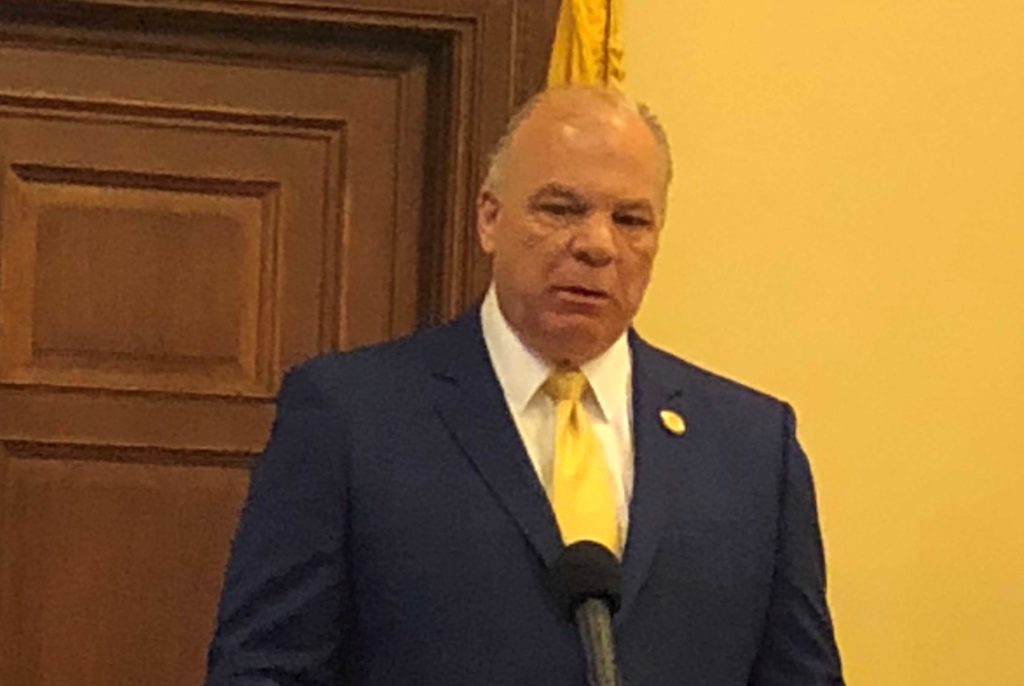Sweeney, Weinberg, Benson Introduce Legislation to Overhaul Paratransit to Improve Service, Reduce Costs

Sweeney, Weinberg, Benson Introduce Legislation to Overhaul Paratransit to Improve Service, Reduce Costs
Lawmakers propose to expand Mercer ARC model that cut ride times, implement other reforms
Trenton – Senate President Steve Sweeney and Senate Majority Leader Loretta Weinberg and Assembly Deputy Conference Leader Daniel Benson introduced legislation to improve the quality of paratransit by enabling client-based service agencies to adopt best practices pioneered by Mercer ARC that drastically cut travel times, reduced accident rates and lowered costs.
“New Jersey’s paratransit services for physically and developmentally disabled people who cannot use regular bus and rail service is a crazy quilt of overlapping and too-often inefficient services that fails to meet the needs of the most vulnerable,” said Senator Sweeney (D-Gloucester/Salem/Cumberland). “Fortunately, there are models that work, and we need to bring those best practices to our paratransit network. These reforms are especially important in the wake of the coronavirus crisis, which will put new demands on all mass transit services.”
The reform legislation, S-2517, is designed to address complaints voiced at the Senate Select Committee on NJ Transit hearing by physically and developmentally disabled riders and their advocates about Access Link. Complaints included three-hour circuitous trips, difficulties in scheduling, and overlapping service because of inefficient coordination between Access Link and the 21 county-based paratransit systems that oversee transportation by local service agencies.
Senators Sweeney and Weinberg thanked the New Jersey Transit Board of Directors for heeding their request two weeks ago to limit new contracts for Access Link services to three years in anticipation of the reform legislation and its implementation. The Board limited Easton Coach Company to a three-year contract in Atlantic-based Region 3 and deferred action on a proposed contract to First Transit in Bergen-based Region 6 pending resolution of a series of labor complaints against the company.
“We were gratified that the Board expressed such strong public support for implementing best practices in order to deliver paratransit services more efficiently for our most vulnerable riders,” said Senator Weinberg (D-Bergen). “Our legislation will bring together NJ Transit, the Department of Human Services, the county transportation departments and service providers to develop a coordinated, responsive and cost-effective paratransit network.”
The legislators said their paratransit reform legislation is designed to address inefficiencies and gaps in the way that transportation services are provided for physically and developmentally disabled riders.
“Paratransit providers often serve our most vulnerable, including seniors and people with disabilities who would otherwise have difficulty using public transportation,” said Assemblyman Benson (D-Mercer/Middlesex). “Our goal with this legislation is to help these vital programs reach more people by expanding and reforming the way we approach paratransit in New Jersey. With an emphasis on safety, efficiency and accessibility, this bill will improve coordination between providers, create statewide best practices and help NJ TRANSIT realize cost savings. It’s a win-win for providers and passengers alike.”
NJ Transit provides van service through Access Link, a federally mandated and funded program, along its current bus, rail and light rail routes, while each of the 21 counties is responsible for coordinating paratransit services, but only within its own borders. These include transportation provide directly by service providers to their clients funded by the state Department of Human Services with Medicaid funding.
“We can and need to do a better job,” said Senator Sweeney. “Mercer ARC developed a program that cut average travel time from 90 minutes to 30 minutes, cut per-passenger costs by 50 percent, and sharply reduced the number of accidents. Best of all, the drivers on their routes work directly for the agencies, know their passengers and are better able to meet their special needs.
“Many developmentally disabled adults travel to work or day programs on the same route every day. Saving an hour a day each way on these daily trips immeasurably enhances their quality of life,” he said.
The Mercer ARC model was developed in partnership with Princeton University with funding from NJ Transit, which studied the program. The legislation establishes a pilot program to expand the capacity of local social service agencies serving the developmentally disabled to adopt Mercer ARC’s transportation model and provide professional transportation services.









